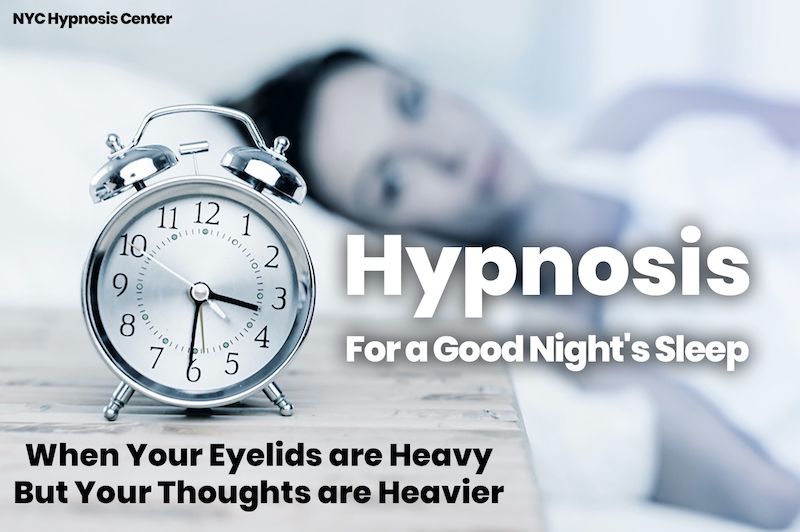
Imagine enjoying a full and restful night’s sleep, each night, naturally and without taking medications.
If you regularly had trouble falling asleep or staying asleep, you have probably asked yourself
“How can I shut my mind down so I can sleep?”
“I feel so tired, why can’t I just fall asleep and stay asleep?”
“I’m afraid to take sleeping pills. Isn’t there some way I can get sleep without worrying about side effects or residual grogginess?”
Millions of people are affected by insomnia or another sleep disorder at some point in their lives. Many more suffer from chronic insomnia. When you can’t fall asleep at night, or are unable to stay asleep, you know that it affects just about everything you do and has a serious negative impact on how you feel. Maybe you can’t shut your mind down at night and spend hours tossing and turning while thinking about what you have to do the next day or about some problem that you can’t seem to fix. Maybe you feel like you’re fighting falling asleep all day only to wake up at night. Whatever the reason you can’t sleep, hypnosis can help.
Imagine…
Eliminating the issues that are causing your sleep disorder
Getting a full and restful sleep each night
Feeling more energized and healthier each day

Today with the near constant interference of technology, the mind becomes trained to remain constantly awake and aware, ready to answer a text, message, or email. Just because your body may feel worn and tired doesn’t mean your mind is able to ‘power down’ and allow you to sleep. This ‘mind chatter’ phenomenon is becoming a widely occurring issue. To overcome insomnia, sleep hypnosis quickly identifies the triggers that are causing you to stay awake, and then retrains how mind perceives them. If the root cause for your insomnia stems from a childhood event, hypnosis can teach your subconscious that it no longer has to fear that event. If it’s ‘mind chatter’ that is preventing your sleep, hypnosis can reprogram your mind so that it can relax and begin to shut down through bedtime routines that will allow you to prepare for and then achieve a full night of restful sleep. Through several other techniques, like visualization, we are able to help you relive some positive sleeping experience that will help your mind release the pent-up stress and strain that is keeping you awake.
How does Hypnosis help you Overcome Insomnia?
Sleep hypnosis works quickly to alleviate your sleep disorder, no matter what is causing it. Hypnosis is safe and completely natural and feels much the same as when you ‘get lost’ in a book or movie. Hypnosis allows your mind to focus inwards so that your subconscious is open to positive suggestions and retraining. Hypnosis for sleep eliminates the power of negative past experiences and the near constant mind chatter that may be affecting your ability to fall asleep and stay asleep. Hypnosis to overcome insomnia allows you to achieve restful nights so you can be your best each day.
A Growing Problem
In the United States, the amount of time spent sleeping and engaged in deep sleep is decreasing. According to the Center for Disease Control, 50 to 70 million Americans have problems with a sleep disorder like sleep apnea and insomnia. On average, 35 percent of individuals receive less than seven hours of sleep during the night, and 37.9 percent of people admit to unintentionally falling asleep during the day.
While the CDC study shows the severe problem with sleep disorders in America, it has wider implications. The quality of your sleep can greatly impact your physical health. In just the realm of driving, an estimated 1,550 fatalities in the United States are caused by drowsy driving each year. To remedy this problem, researchers recommend following good sleep hygiene. Avoiding caffeine, nicotine, large meals,and alcohol near bedtime can help increase your chances of falling asleep. In addition, regularly going to bed at the same time can help. On average, adults need seven to eight hours of sleep every day. If you are not getting this, you could be hurting your physical, emotional,and mental health.
Boosting the Quality and Quantity of Sleep
This problem is worsened by the fact that sleep quantity and quality decreases drastically as humans age. By the age of 50 or 60, the amount of deep sleep drops drastically. To combat this decline, individuals are turning to hypnosis to boost the power of their sleep quality. In the Swiss study, participants who were suggestible to hypnosis had a 67 percent longer nap and a higher level of deep sleep. Slow-wave activity during deep sleep was improved, which indicates that hypnosis for insomnia can increase the restorative, refreshing power of sleep.
Improving Relaxation
During a NYC Hypnosis Center insomnia session, you are guided through a process of total relaxation. This process changes the functioning of your brain waves so that your mind naturally clears of thoughts and mental chatter. Throughout the process, your body enters into a state of deep relaxation. Other than improving your quality of sleep, hypnosis is also able to reduce the anxiety and stress that are bothering you. Instead of waking up due to your worries or last-minute concerns, you are able to stay deeply asleep.
Hypnosis for insomnia works to break down the causes of your sleepless nights. It targets specific memories and anxieties that are fueling your sleep disorder. Over the course of a few sessions, hypnosis can break down negative thought patterns and provide you with a more positive, relaxed state of mind.
What is Sleep Hypnosis? Understanding Hypnotherapy for Insomnia
The struggle of lying in bed, wide awake, is a frustration that many of us know all too well. As the clock ticks away, we count the dwindling hours before our alarms go off, our thoughts racing through past events, future plans, and everything in between. Anxiety about life’s challenges and an overactive mind are often at the root of sleep difficulties. Trying to force sleep only makes it more elusive, trapping us in a vicious cycle of worry. Although we can’t command our bodies to sleep, we can learn to relax our minds and trust in the natural ebb and flow of restful slumber.
Exploring Insomnia’s Effects: The Far-Reaching Impact of Sleeplessness
Insomnia stealthily infiltrates our lives, taking a toll on our physical, emotional, and mental well-being. When we lack deep, restorative sleep, it sets off a chain reaction of negative consequences, gradually diminishing our overall life satisfaction.
The Physical Effects of Sleep Deprivation
Physically, a lack of sleep weakens our immunity. Adequate rest is vital to ward off infections and illnesses. Persistent sleep deprivation, however, may lead to long-term health issues such as hypertension, diabetes, and heart disease. Additionally, our hormonal balance is thrown off by insufficient sleep, particularly the hormones governing our appetite. As a result, we may experience intense hunger, cravings, weight gain, and even obesity. Poor sleep also impairs cognitive functions like memory, focus, and decision-making, reducing our efficiency at work.
Insomnia’s Impact on Mental Health
Insomnia’s mental impact is significant. Cognitive decline makes everyday tasks and responsibilities harder to handle. Decision-making falters, giving way to impulsiveness and poor judgment. Furthermore, chronic insomnia may exacerbate pre-existing mental health issues or contribute to mood disorders like depression and anxiety.
Emotional Toll of Sleep Deprivation
Emotionally, sleep deprivation can be devastating as well. We might become irritable, moody, and highly sensitive to stress. Our relationships may suffer as irritability, impatience, and conflicts arise with others. Over time, enduring sleep problems can strip away life’s joy, making it increasingly challenging to find happiness in hobbies, socializing, or personal achievements.
A Glimpse into Insomnia Statistics:
- Nearly 30% of adults face short-term insomnia.
- Roughly 10% of people grapple with chronic insomnia.
- Women are more susceptible to insomnia than men.
- The prevalence of insomnia increases with age.
Types of Insomnia:
- Onset Insomnia – Difficulty falling asleep at the beginning of the night.
- Sleep Maintenance Insomnia – Trouble staying asleep throughout the night.
- Terminal Insomnia – Waking up too early and being unable to return to sleep.
- Transient Insomnia – Temporary sleep disturbances lasting a few days to a week.
- Short-term Insomnia – Sleep problems lasting for a few weeks.
- Chronic Insomnia – Persistent sleep issues lasting for months or even years.
Sleep Disorders:
Sleepwalking
Sleepwalking, a disorder that entails walking or carrying out complex actions while asleep, leaves the individual with no recollection of the event upon awakening. This condition can be dangerous since the person is unaware of their surroundings and actions.
Sleep Apnea
Sleep apnea is a potentially serious sleep disorder where breathing repeatedly stops and starts during sleep. Loud snoring and abrupt gasps for air often accompany the condition resulting in poor sleep quality, which in turn increases the risk of cardiovascular issues and other health problems.
Narcolepsy
Narcolepsy, on the other hand, is a chronic neurological disorder. It causes excessive daytime sleepiness, sudden sleep attacks, and sometimes even cataplexy – a sudden loss of muscle tone brought on by intense emotions. This uncontrollable sleepiness wreaks havoc on daily life, affecting work, school, and socializing.
Fatal Familial Insomnia
A rare inherited prion disease, fatal familial insomnia, progressively intensifies insomnia until it leads to severe physical and mental deterioration, and eventually, death. Typically manifesting in middle age, the condition progresses rapidly; most patients succumb within one or two years of its onset.
Sleep Terrors
Sleep terrors, also known as night terrors, involve episodes of extreme fear, screaming, and thrashing during sleep. Interestingly, individuals often have no recollection of these events upon waking. These episodes generally occur during the first few hours of sleep and can cause significant distress not only to the person experiencing them but also to their family members.
Are Sleeping Pills the Answer to Overcome Insomnia? NO.
Although sleeping pills may provide temporary relief, they are not a sustainable solution. These medications can interfere with deep sleep and REM cycles, reducing overall sleep quality. Over time, our bodies can develop a tolerance, requiring increased dosages to achieve the same effect. Unnatural substances, such as sleeping pills, can create further imbalances in the body.
Enter sleep hypnosis for insomnia, a powerful method for addressing negative subconscious beliefs surrounding sleep and instilling new beliefs that promote a more balanced and relaxed life. Anxiety and stress are primary factors that can make it difficult to calm our minds before bedtime. Hypnotherapy for sleep targets these issues, teaching clients to relax and release tension, making it easier to fall asleep initially. Hypnotherapists employ various suggestions, aiming to dispel negative thoughts and beliefs about sleep that exacerbate insomnia. Their techniques have been proven effective in numerous studies.
Scientific Data Supporting Hypnosis to Overcome Insomnia
One notable study, published in the Journal of Clinical Sleep Medicine, revealed that hypnosis can significantly enhance sleep quality. Not only was it a promising treatment for sleep issues, but it also had a low occurrence of adverse effects. Meanwhile, researchers hailing from the Universities of Zurich and Fribourg uncovered more fascinating results. They discovered that hypnosis positively impacts sleep quality, especially by boosting restorative slow-wave sleep.
In addition, the Open Journal of Social Sciences published a compelling research paper. It highlighted the success of hypnotherapy, specifically when utilizing relaxation techniques and positive self-suggestion. Patients struggling with insomnia and rumination experienced marked improvement, further highlighting the value of hypnosis in treating sleep-related concerns.
Using Hypnotherapy for Better Sleep
Using hypnotherapy, individuals can reestablish a healthy sleep pattern by addressing underlying anxiety and returning to a normal sleep routine. Deep relaxation is essential for sleep, and hypnotherapy insomnia is highly effective at teaching relaxation techniques. Sleep disturbances can become ingrained in our subconscious minds over time, making it crucial to address these issues with targeted therapy.
Hypnosis for insomnia can be a transformative experience, allowing clients to work through challenges and develop effective solutions for better sleep. Hypnotherapy can also serve as a beneficial bedtime routine, creating an ideal environment for deep, restful sleep.
Does Sleep Hypnotherapy Work?
Insomnia is one of the most responsive conditions to hypnotic therapy, particularly when related to an overactive mind. Hypnosis can help reset our internal clocks and establish positive, calming bedtime routines. Deep sleep and hypnosis are closely connected, providing a natural and effective alternative to sleeping pills.
The best sleep hypnosis employs therapeutic suggestions to tackle the root causes of insomnia. During a hypnosis session, the therapist may suggest reducing anxiety around the inability to fall asleep and propose various relaxation techniques to prepare for sleep. A skilled therapist can tailor the experience to address your unique needs. For those experiencing recurring nightmares, hypnotherapy can also help address and resolve the underlying traumatic events causing them.

Disclaimer: Results may vary from person to person

